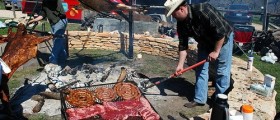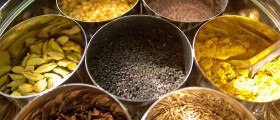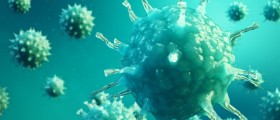
Food poisoning is relatively common but it can be very dangerous. It occurs when a person eats food contaminated with bacteria, viruses or parasites. The most common bacterial food poisoning is salmonella and the viral one is norovirus infection.
Symptoms
The symptoms of food poisoning may vary but they usually involve gastrointestinal problems like abdominal pain, cramps, nausea, vomiting, diarrhea, and also fever, fatigue and general malaise. The symptoms can set in anywhere between few hours and few days after consuming the contaminated food.
What types of food can cause poisoning?
Basically all food types can cause food poisoning but it is most commonly associated with meat, seafood, dairy products and pre-packaged food.
In most cases the poisoning clears on its own within several days, but it is still recommended to see a doctor if food poisoning is suspected. One of the major complications of food poisoning is dehydration due to severe diarrhea and vomiting. Dehydration must be prevented through consumption of neutral fluids, such as mild herbal tea, plain water and soup. The recovery from food poisoning is generally based on plain, bland foods, such as dry toast, bananas, jello and such.
Prevention of food poisoning
Food poisoning can be prevented by following the “rule of four Cs”, which stand for cleaning, cooking, chilling and cross-contamination.
Cleaning
Harmful agents that cause poisoning can be prevented by maintaining excellent hygiene of people, items and environment associated with food. Frequent hand washing and sterile utensils and surfaces are essential for the prevention of food-borne illnesses.
Cooking
Many bacterial and viral strains in food can be killed by proper cooking, because they cannot survive at high temperatures. This is particularly important when it comes to meat, which should be cooked long and at very high temperatures. Temperature of the meat can be controlled using special food thermometers.
Reheating should never be done more than once and when it is done, the food should be steaming hot.
Chilling
Chilling is another important aspect in prevention of food poisoning, because low temperatures keep the bacteria from growing and multiplying. In addition, some organisms cannot survive very low temperatures. Food meant to be frozen should be cooled down as quickly as possible before freezing, and freezing is best if very quick.
Cross-contamination
Finally, it is very important to make sure that cross-contamination does not occur. Cross-contamination means that the microorganisms pass from one food item to another. In order to avoid this, the food should be stored separately, making sure that the items do not touch and that juices from the food do not leak from the bag onto other food. Raw meat can be particularly dangerous and it should be stored at the bottom of the refrigerator in sealed containers.

















Your thoughts on this
Loading...